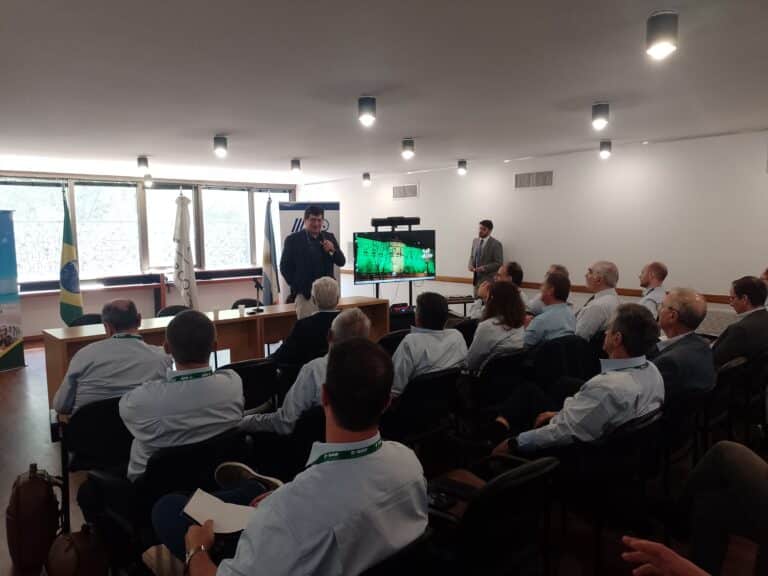Briefs from Washington is a contribution to IICA management from the IICA Representation in the USA.
Year XVI – Number 1

Summary
On July 6, 2016, the President of United States, Barak Obama, signed into law the “The United of States of America Food Security Act of 2016”, passed as a bipartisan legislation confirming the commitment of the United States of America to tackle the pressing problems of food security and poverty around the world. This document defines the objectives, definitions, strategy and principles that will guide the actions of the United States in matter of food and nutritional security and on the promotion of agriculture-led development. The entire document can be found in https://www.congress.gov/bill/114th-congress/house-bill/1567 . It will be important for the countries of the Latin American and Caribbean regions to keep close contact with the USAID offices in their countries to discover possible ways of collaborating under this new law.
Background
Recognizing that hunger and food security are one of the most pressing issues in our times and after the increases and augmented volatility of food prices experienced in 2007-2008, President Obama´s administration created the “Feed the Future Initiative” (important to recognize that some components of the initiative started during the last few years of President Bush administration) as response to the USA commitments at the G’8 Summit Meeting in L´Aquila, Italy and as a novel approach to global food security and poverty reduction.
During the last 5 years, the Obama administration invested more than $ 5.6 billion dollars in this initiative, focusing on 19 countries around the world. However, being this a Presidential initiative lacked statutory conditions to allow it to continue into the future, and it was needed to find ways to assure that these important investments were sustained and that the US continue to provide leadership around the world in the areas of food security and poverty alleviation. To this end legislation was introduced both in the House and Congress to make these efforts permanent.
Recognizing the strategic importance of food security and poverty alleviation, on July 6th, 2016, Congress, with bipartisan support, passed the “Global Food Security Act of 2016”, as a comprehensive approach from the United States of America, to achieve sustainable food and nutrition security around the world, ensuring that these efforts continue beyond the current presidential term.
Food security act
The United States Global Food Security Act of 2016, pursue 9 objectives focused in strengthening agricultural-led economic growth and poverty alleviation, strengthening maternal and child nutrition (with special emphasis on the first 1000 days of life), create capacity for long term productivity growth, enhance the participation and leadership of the US-based universities, align and leverage other US strategies and investments and ensure transparency and efficiency of the resources assigned to the program. All of these done with the final interest of helping the most needed nations of the world to develop their own national-led agricultural programs to allow them to meet the food and nutrient needs of their own people.
This legislation requires the development the entire administration strategy to address food insecurity and malnutrition. Among other principles, this strategy includes the following:
- The requirement to establish very well defined goals, outcomes and performance metrics.
- Definition of clear selection criteria for target countries, communities and beneficiaries.
- Assure that all support provided be aligned with country-own agricultural, food security, poverty alleviation, programs and policies.
- Support inclusive value chain development and access of small holder farmers, particularly women.
- Improve the nutritional status of women and children, to reduce child stunting.
- Support the development of local capacities to assure the long term effects of the program.
- Help to develop resilience at the community and producer level.
- Address the vulnerability and nutritional needs of more vulnerable parts of the society.
- Leverage the participation of other actors, public, private, faith-based and civil society organizations.
- Strengthen collaboration between US based universities (private and land grand) with higher education in target countries.
- Establish strict and modern systems for monitoring and evaluation, requiring the Administration to report to Congress and the public, on a yearly basis, about this strategy, its results and the use of funds.
This legislation also authorizes the President to carry out actions to prevent or address food shortages, including emergency food assistance programs, but recognizes that due to the increased and persistent conflicts and events during the last four years, the available funds for international disaster and emergency assistance has been drastically affected, therefore this legislation invites the US to work in coordination with other donors and the international community to promote the best use of these resources and to utilize innovative approaches to help persons and communities to build capacity and resilience.
The bill authorizes “…to be appropriated the Secretary of State and the Administrator of the United States Agency for International Development $1,000,600,000 for each fiscal years 2017 and 2018 to carry out those portions of the Food Security Strategy that relate to the Department of Stater and the United States Agency for International Development, respectively….”
Implications
The passing of this Act by the Senate and the Congress with bipartisan support is a clear demonstration of the importance that food security has for the security and stability of our world. This strategy confirms the commitment of the US toward an inclusive development based on the concept that cooperation, and not charity, is the engine for economic growth.
In our opinion this legislation has implications for the US and also for the countries of the Americas. For the US this legislation make a profound statement about the importance of US leadership on food security and poverty alleviation around the world, which must be followed by long-term strategic investments. The legislation will also force to have more accountable and transparent mechanism to demonstrate the efficacy and efficiency of the use of tax payer dollars. Finally the fact that Feed the Future has been transformed into legislation allow us to believe that regardless of the outcome of the next presidential election in the US, the country will continue to support international development in the areas of food and nutritional security, agriculture development of small holder farmers and poverty alleviation.
For the countries of the Americas the passing of this legislation will make funding available for some countries (likely those currently being part of the Feed the Future initiative) to continue to develop and strengthen country led agricultural policies aimed to reduce poverty and increase small holder productivity. Countries need to closely follow up the implementation of this legislation and keep a close communication with local USAID representatives.
6. Reference
H.R.1567 – 114th Congress (2015-2016): Global Food Security Act of 2016 | Congress.gov | Library of Congress
https://www.congress.gov/bill/114th-congress/house-bill/1567
Food Security’s Ability to Unite, Power to Protect | Center for Strategic and International Studies
https://www.csis.org/analysis/food-security%E2%80%99s-ability-unite-power-protect
Congress Passed the Global Food Security Act. Here’s Why That’s Historic | whitehouse.gov
**
“Briefs from Washington” are a contribution from the IICA Representation in the US to IICA management and professional personnel on current economic and political issues that could have an impact in the agriculture in the region. The ideas and commentaries in each of the briefs DO NOT represent any Institutional official view or position and are solely the responsibility and opinion of the authors.
All quotes within quotes (“) have been taken literally from the original “Global Food Security Act of 2016” document in order to respect accuracy.











